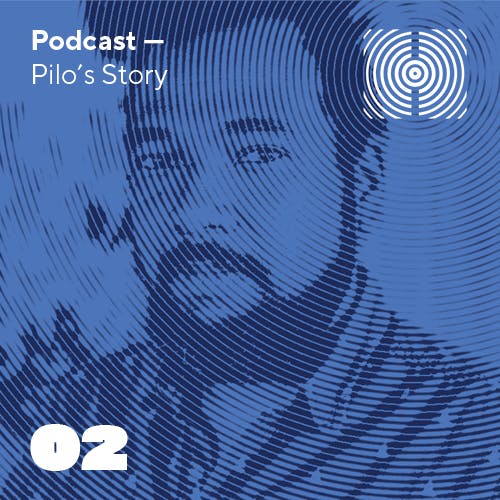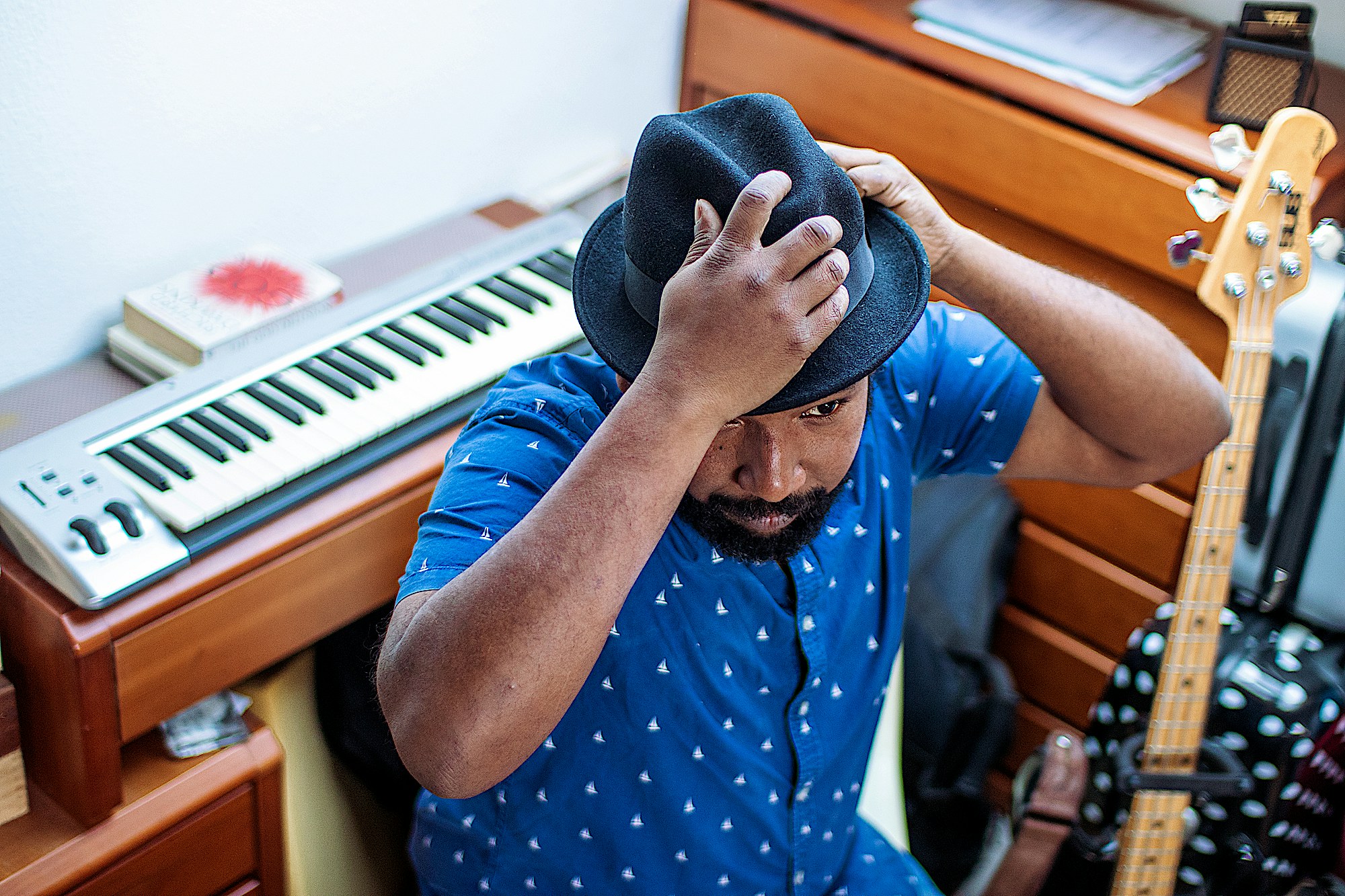Pilo's Story
Listen to or read Pilo's story

Pilo's Story
The first thing I did when I got in the detention centre was to ask people how long have you been here. I received a lot of different answers. Like, I’ve been here for one week. I’ve been here for two months. I’ve been here for one year. I’ve been here for two years. I’ve been here for four years. And I start to get nervous about how long I am going to be here.
Then I learn that England is the only country in Europe with the policy of indefinite detention for migrants. Then I start to understand what indefinite detention means. You know in movies, the person counts the days down because they know how long they’re going to be in? In detention, you don’t know how long you’re going to be there. You just count the days up.
And the guards can be really nasty to you. They say things like, “I don’t have any empathy for you”, or “Oh this guy is crying because his stomach hurt.” You can see in the faces of some of the guards that they are wanting you to do something – run at them or something – so they can do something to you, showing that they are in the power. So I saw that detention can make the worst of people.
But it can make the best of people as well, because I saw so much unity. Sometimes I just didn’t want to eat. And when someone realises they don’t see you in the dining room, they try to steal some food for you. There is people looking after each other. So there are people treating you as though you’re not a human being. On the other hand, people who don’t have anything – not even freedom – treating you as the most beautiful human being.

Then there’s the counting. They count you to see if you are in the cell. You go to bed at nine. Around eleven, they make the first count. If you’re asleep, they wake you up. They just open the door in an aggressive way and turn on the light. And it’s really cold, so if you’re covered and asleep, they knock the bunk beds with a stick to wake you up. Then around five am, they do it again. Your sleeping time is always interrupted. Also, the mattress was around five centimetres thick so you can feel all the metal bars. So when I come out of detention – I don’t know how to explain it – but it’s like my own bed was too comfortable and I have to sleep on the floor.
That first Hear Me Out workshop, I learn so much about music. Apart from Katie, Anna and Oliver who ran the workshop, I was the only musician in the room. And the people there was just trying to make music – to have a happy moment. I realised something that you can’t learn, not even in a really good rock band or in a Conservatory of Music: music is an instrument to make you free.
You would be so happy if you saw the faces of the detainees then. Go to that place without any context, and you could say it’s just noise. But for me it was the most beautiful song I have ever made. Because the faces and the unity – you could just breathe it in. For that moment, they were free and happy. And I was too. No one can take that away.
"Music is an instrument to make you free"
After the first workshop, people start to respect me in a way. Like – “Hey man, you play the bass so good”, and “Can you teach me to play the guitar?” Even some guards start acknowledging me as another human being. I remember, one of them, he has a wife who was another guard in the place. One day, he called me and said, “Hey can you come to the office one moment.” And he said to me, “Look, my wife is in another facility, but I’m going to call her and I want to give her a serenade because today’s our anniversary. Do you mind playing?” It’s funny, because this guy was strong and macho, but that moment, he was just like a cat.
After a month or so in detention, I started to be really nervous and I sacked my solicitor. At the start, he said I’d be out in a week. And then he started saying stuff like, “Oh you know, with the Brexit situation.” Then I start catching him making mistakes, because I learn there’s a place in the library with some law books. Normally, they hide the books you really need, so it’s easy to find the dominos and other things. But the books you need to help you get out from there, like How To Get Out Of Detention by Bail for Immigration Detainees – a book I 100% recommend – they’re hidden. So I start to learn the law vocabulary so I could speak with him, and I say this is wrong. He treated me like a desperate person who read a little bit.
And there was another guy called Adam, from Poland – a beautiful person, someone I now call a brother, I was even his first man in his wedding when he got out from detention. Anyway, we start realising we’re in the same situation and his lawyer doing the same thing. So he say, “OK, let’s start studying.” And we set up a kind of office in our room. And the other two guys in our room, start showing us their paperwork too and we start giving advice. After a month, there was a queue of people outside our room with their paperwork – we try to help other people get out too. And they used to say, “Ah, this is Livanski and Moreno solicitors!” It was very powerful for me, because we freed ourselves and we also helped others.
When I’d been out of detention for about a year, I received a letter with my passport by the Home Office saying that I have 15 days to go from the country. That was unlawful, again. Anna, from the Hear Me Out workshop, found me a solicitor, and the guy said, “Listen, this is not a mistake, they for sure know who you are, what you are doing, they are telling you, this is gonna take a while. You can like, go and fight for this for your right to remain because this is not legal. But it's gonna take at least five years and you cannot work.” And I say, “No, man, I, I can't afford this.” And I didn't have the energy to be honest.

So I came to Madrid. And after one year I had my right to remain. Now I'm living in a studio flat with my girlfriend who is a musician as well. I feel that I kind of starting to find a balance in my life, at least for now. And yeah, I'm happy. But I never forget the people inside of detention. And I will never stop fighting for a time limit.
To my brothers and sisters who are still inside of detention, don't lose the hope. Find the strength. And if you can, embrace the mental struggle, it’s part of the process. Try to find balance in your mind. And you will see you're going to be okay. To Hear Me Out and people who support them, I don't know if I actually have words to express how proud I feel about every one of you guys, and the amazing human beings you all are. It takes a lot to fight for someone who doesn't have freedom and to empathise with us. Thank you very much for everything you've done. And you are still doing for these people.
LATEST NEWS
- Contact us
- Privacy Policy
- Follow us:
Registered in England and Wales, Company no 5943893 Charity no.
1119049
© Hear Me Out 2012—26. All rights reserved.